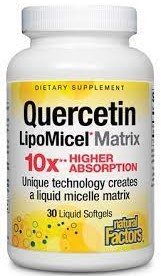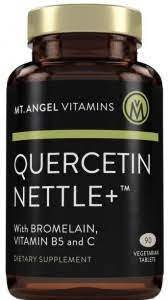Spring allergies are usually something we don’t worry about until around April, but with the extended warm temperatures we've been having, it's been speculated that it will mean that people will experience seasonal allergy symptoms much earlier.
Researchers also say that mild winters can make allergy season last longer. Additionally, drier weather in early spring can actually make allergies worse, since there's less rain to clean pollen out of the air.
The best way to help spring allergy symptoms naturally is to begin treating them before allergy symptoms start, or at least before they get severe.
We have several great supplements to help with allergy symptoms, but a big customer favorite for allergies is our raw local honey. We saved some of the spring honey from last year for spring allergy season this year, since that light colored honey is a rare honey that has only a limited supply since it's from the bee's first harvest of spring flowers and trees. All raw local honey can be helpful for allergies, but the spring honey may people find to be the most effective.
Stop by the store to pick up a jar while supplies last. We have plenty of the late summer local honey harvest, but a much smaller quantity of the spring honey from last year, so stop in to pick up a jar while you can.
One supplement we would especially recommend for allergy symptoms is quercetin, an antioxidant found in certain fruits and vegetables. It's beneficial for respiratory health in general, but is great for allergy symptoms because quercetin works to reduce inflammation in the respiratory system and can also help with reducing the body's overproduction of histamine in response to allergy triggers.
For the best results in people with spring allergies, we'd recommend starting to take quercetin now, before allergy symptoms start. Quercetin has also been researched with impressive results against a variety of different respiratory viruses, with studies showing that quercetin may help to prevent viruses from being able to enter and infect cells as well as slowing viral replication, so it's also a good supplement to take to help stay healthy during this time when it seems like many people are still fighting a variety of different viruses. We have an extensive selection of quercetin at the store, but we'd recommend using a liposomal quercetin if possible (I wrote about quercetin in our newsletter last month) since it is significantly better absorbed.
Stinging nettle is another natural antihistamine that works well for allergy sufferers, without the drowsiness and other side effects common to over-the-counter antihistamines. We have a great supplement at the store by Mt. Angel that has both quercetin and nettle that's a favorite for seasonal allergies.
A neti pot can also be helpful to help wash pollen and other irritants from the sinuses. Stop by the store if you have any questions and so we can help you to find the right products to help this allergy season.




